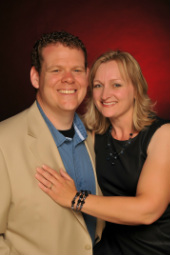On a normal assignment, Eran would grow weary and worn between visits to the temple for the various festivals and sacrifices. His wings would shade dim and colorless. However, since Mary returned from her visit with Elizabeth, his wings maintained their brilliant swirling rainbows of energy from the Spirit. He glanced at Mary. She sat atop a grey donkey with a black mane. As her stomach grew, so did the intense light within. Now full-term, the form of the God-child shone complete through flesh and tunic—though only in the spiritual domain.
Ahead of them people yelled and dogs barked. As they drew closer, it became evident that a wagon wheel had fallen off. Next to the wagon stood Captain Eitan. “Somehow the iron keeping the hub tight snapped.” He smiled at Eran. “Do you think Joseph might be able to lend a hand?” He returned a flaming sword to its sheath.
Eran placed a hand on Joseph’s shoulder. The man walked with a brisk pace, unstirred. Perhaps he would not help after all. Eran cast a glance to Adiya, who rode next to Mary. She already whispered into Mary’s ear.
“Joseph,” said Mary. “I could really use to stop. The child kicks and I think it would help to walk some.”
Joseph slowed and nodded. “I’ll see if I can lend a hand with the wagon.” He sighed. Clearly, he understood the intent of his lovely young betrothed. He walked to the wagon. “Looks like you lost the iron strap?” The man with his hand to his head just nodded.
After a couple hours, two strips of tanned leather, some pounding, and a group effort to lift the wagon, Joseph had the wheel repaired and back on the road. However, the sun sank low and with it the hopes of reaching Bethlehem before nightfall.
This meant they would arrive on the seventh and final day of Sukkot. Joseph worried for his betrothed. He indicated often his desire to already have arrived in Bethlehem—to have time to make the necessary arrangements, he said.
Eran approached Eitan. “It would appear that the time is quite near.” The God-child in Mary has shifted and is moving less by the hour. “It could be tonight.”
“Not tonight,” said Eitan. “Bethlehem Ephrathah, you are small among the clans of Judah; One will come from you to be ruler over Israel for Me. His origin is from antiquity, from eternity.” Eitan smiled. “Soon, but not tonight.”
The next day when they arrived in Bethlehem. Joseph went from household to household with no success. No one offered a room in which to birth their child. Despite limited resources, Joseph even tried the local inn. No rooms remained anywhere.
“It is a shame,” said Adiya, “when the people of King David’s own town should be observing the command passed down from Moses to celebrate the exodus from Egypt by spending the night outside in shelters. The mother of God Himself cannot find accommodations.”
“Shame?” asked Eitan. “That the people are not outside to witness what God is about to do—yes. That the God-child, even in his unborn state will observe the command—no.” He pointed toward Joseph, as the innkeeper walked him and Mary toward a shelter in which the animals were kept. “Tonight, God Himself will once again tabernacle among his people. And yet, all but the lowliest, will miss the event, because they do not keep the instructions of Moses.”
Eran reflected on the instruction passed down from God through Moses. This is a permanent statute for you throughout your generations; you must celebrate it in the seventh month. You are to live in booths for seven days. All the native-born of Israel must live in booths, so that your generations may know that I made the Israelites live in booths when I brought them out of the land of Egypt; I am Yahweh your God.
That night, after much screaming, God once again tabernacled among His people.
All Scripture from Holman Christian Standard Bible (HCSB) - Copyright © 1999, 2000, 2002, 2003, 2009 by Holman Bible Publishers, Nashville Tennessee. All rights reserved.
Image by Joseolgon (Own work) [CC BY-SA 3.0 (http://creativecommons.org/licenses/by-sa/3.0) or GFDL (http://www.gnu.org/copyleft/fdl.html)], via Wikimedia Commons


 RSS Feed
RSS Feed